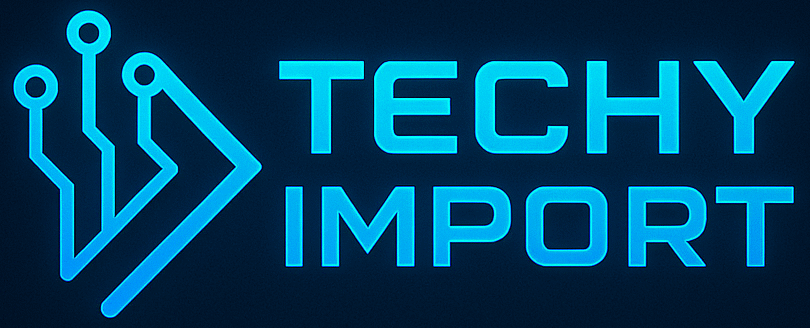I remember getting a big hospital bill even though I had insurance. It turned out the doctor who treated me wasn’t part of my plan. I felt shocked and confused because I thought everything was covered.
Health insurance is expensive because medical care, drugs, and hospital services cost a lot. Many people also face surprise bills and high out-of-pocket costs. In order to pay for these expenses, insurance firms increase rates.
In this article, you’ll learn why health insurance costs so much and what’s making it harder for people to afford care.
Table of Contents
- Why is health insurance so precious in the United States?
- What causes high health insurance decorations – Learn Health Secrets!
- Why do traditional medicines raise health insurance costs?
- What are surprise medical bills and how do they affect insurance costs?
- How do sanitarium prices impact my health insurance rates?
- How does medical technology increase health insurance costs?
- Do insurance company gains affect decoration prices?
- How does lack of competition affect insurance prices?
- What’s the Impact of Underinsurance on Healthcare Costs?
- What part do habitual nails play in rising insurance costs?
- How do executive costs raise the price of insurance?
- Why are traditional medicines so precious in the U.S.?
- FAQs:
- In The End:
Why is health insurance so precious in the United States?
Health insurance is precious in the U.S. substantially because healthcare itself costs a lot. Hospitals, surgeries, tests, and traditional medicines all carry high price markers. In numerous cases, the same treatment costs two or three times further in the U.S. than it would in other countries.
Also, there are a lot of executive costs in the American healthcare system. Insurance companies have to pay workers, handle paperwork, and manage complex billing systems. These charges also raise the cost of your health plan.
What causes high health insurance decorations – Learn Health Secrets!
High health insurance decorations are substantially caused by the rising cost of medical care. When hospitals, croakers, and medicine companies charge further for their services, insurance companies raise decorations to cover these costs.
Insurance workshop by pooling plutocrats from numerous people to cover the charges of those who need care.However, the cost is participated by everyone, If a large number of people in the insurance pool have high medical bills.
Why do traditional medicines raise health insurance costs?

Traditional medicines are one of the biggest contributors to high health insurance costs. In the United States, medicine companies can set their own prices, especially if the medicine is new and under patent protection.
These high medicine prices force insurance companies to pay further, and they pass those redundant costs onto guests through advanced decorations and deductibles. Indeed if you are not the one taking the medicine, the cost affects everyone in the insurance pool.
What are surprise medical bills and how do they affect insurance costs?
- Surprise medical bills happen when you get treatment and later find out that some part of the care wasn’t covered by your insurance. This can happen even if you go to a hospital that’s in your insurance network.
- These bills usually show up after you’ve seen a doctor or specialist who is not in your network, even though you didn’t know it at the time. For example, you might visit an in-network hospital, but the anesthesiologist or radiologist may not be part of your insurance plan.
- Because that doctor is out-of-network, they can charge much higher rates and your insurance company might cover only a small part, or nothing at all.You receive a direct charge for the outstanding balance.
- Many people are caught off guard because they believed their insurance would pay for the full treatment. This causes stress, unexpected debt, and financial hardship.
- Surprise medical bills also affect insurance costs for everyone. When insurance companies get large claims they didn’t plan for, they raise premiums and deductibles for everyone to cover those losses.
- Thankfully, laws like the No Surprises Act (2022) were passed to protect people from these types of bills in emergency situations. But not all situations are covered yet.
- These surprise bills show how confusing and unfair the current system can be—and why it’s so important to make prices clearer and protect patients from hidden charges.
How do sanitarium prices impact my health insurance rates?
Sanitarium prices play a big part in how important you pay for health insurance. When hospitals charge high freights for surgeries, treatments, or overnight stays, insurance companies have to pay further.
One reason sanitarium prices are so high is that there’s no standard price for medical services. Two cases might get the same treatment at different hospitals but be billed in fully different quantities. Hospitals also charge more if they know the case has private insurance rather than Medicare.
How does medical technology increase health insurance costs?
Medical technology plays a big part in why health insurance is so precious. New machines, advanced imaging tools, and high- tech procedures are frequently veritably precious to buy, maintain, and operate.
Insurance companies end up paying further for these services, and that leads to advanced costs for everyone in the insurance pool. Indeed if you do n’t use these machines yourself, the added cost gets involved among all policyholders.
Do insurance company gains affect decoration prices?

Yes, insurance company gains do have an effect on decoration prices. Insurance companies are businesses, and numerous of them are for- profit associations. This means they need to make plutocrats for their shareholders.
When healthcare costs rise, insurance companies increase decorations to make sure they can still make a profit. They also raise prices to meet anticipated future charges, similar to more precious medicines, new technology, or a sicker client base.
How does lack of competition affect insurance prices?
When there’s not enough competition between insurance companies or healthcare providers in a region, prices tend to go up. In areas with just one or two major sanitarium systems, those providers have further power to charge advanced prices because there’s no need to challenge them.
Also, if there are only many insurance companies in your area, they do n’t have an important reason to offer lower decorations. Without competition, there’s no pressure to ameliorate services or reduce costs.
What’s the Impact of Underinsurance on Healthcare Costs?
1. Surprise Bills
Surprise bills happen when patients get unexpected charges after receiving medical care, even if they visited an in-network hospital. This often occurs when a doctor or specialist, like an anesthesiologist or radiologist, is out-of-network.
2. Drug Prices
Prescription drug prices in the U.S. are very high compared to other countries. This is because there’s no government rule to limit how much drug companies can charge. Some people skip their medicines because they can’t afford them, which leads to more health problems.
3. Rural Costs
People living in rural areas often pay more for health insurance. That’s because there are fewer hospitals and doctors, so healthcare providers don’t have much competition. When there’s only one hospital in town, it can charge more.
4. Hidden Fees
Hidden fees in healthcare are costs you don’t expect or understand until after treatment. This might include extra charges for using hospital rooms, equipment, or services not listed clearly. These fees make medical bills more confusing and harder to manage.
5. Poor Access
Poor access to care means people can’t easily find or afford the medical help they need. This is common in low-income areas, rural regions, or among people without good insurance. When care is hard to get, people wait too long to treat illnesses.
What part do habitual nails play in rising insurance costs?
Habitual ails like diabetes, heart complaint, asthma, and high blood pressure are long- term conditions that bear constant care. People with these ails frequently need regular croaker visits, specifics, tests, and occasionally sanitarium stays. Over time, this adds up to a lot of plutocrats.
Insurance companies have to cover the ongoing costs of treating habitual ails, and that affects everyone in the plan. Indeed if you are healthy, your decorations help cover the charges of others who are not.
How do executive costs raise the price of insurance?

Executive costs are another big reason why health insurance is so precious. Insurance companies spend a lot of money on effects that have nothing to do with factual medical care. This includes processing claims, billing, client service, marketing, and paying hires to their workers.
In the U.S., these executive costs are much more advanced than in other countries with simpler healthcare systems. For illustration, in single- payer systems, there is generally just one billing system and smaller layers of paperwork.
Why are traditional medicines so precious in the U.S.?
Because the government has minimal control over prices, traditional medications are more widely available in the United States than in many other nations. In other countries, such as the UK or Canada, the government bargains with pharmaceutical companies to establish reasonable costs.
Some specifics, especially for serious conditions like cancer or rare conditions, can bring thousands of bones each month. Indeed common drugs like insulin can be veritably precious. This affects health insurance because when medicines are brought further.
FAQs:
How does sanitarium pricing contribute to precious insurance?
The expense of health insurance is increased by the incredibly complicated and widely fluctuating sanitarium prices in the United States. In contrast to other nations where medical treatment costs are more set, American hospitals are able to charge what they want.
How do surprise medical bills impact insurance rates?
Surprise medical bills are when you get treated by a croaker or provider who is n’t in your insurance network, indeed if you did n’t choose them. For illustration, you might go to an in- network sanitarium for surgery.
How do internal health care costs affect insurance prices?
Mental health is an important part of overall well- being, but internal health care can be expensive. Further people are now seeking remedy, comforting, and drugs for conditions like depression, anxiety, PTSD, and dependence .
Can government policy changes lower health insurance costs?
Yes, government policy changes can make a big difference in health insurance costs. When the government way in to regulate prices, offer subsidies, or expand programs like Medicaid and Medicare, it can help lower costs for individuals and families.
In The End:
In conclusion, health insurance is expensive because of high medical costs, surprise bills, expensive medicines, and limited access to care. Many people also face underinsurance, meaning their plans don’t fully protect them. These problems lead to higher premiums and out-of-pocket costs for everyone.





